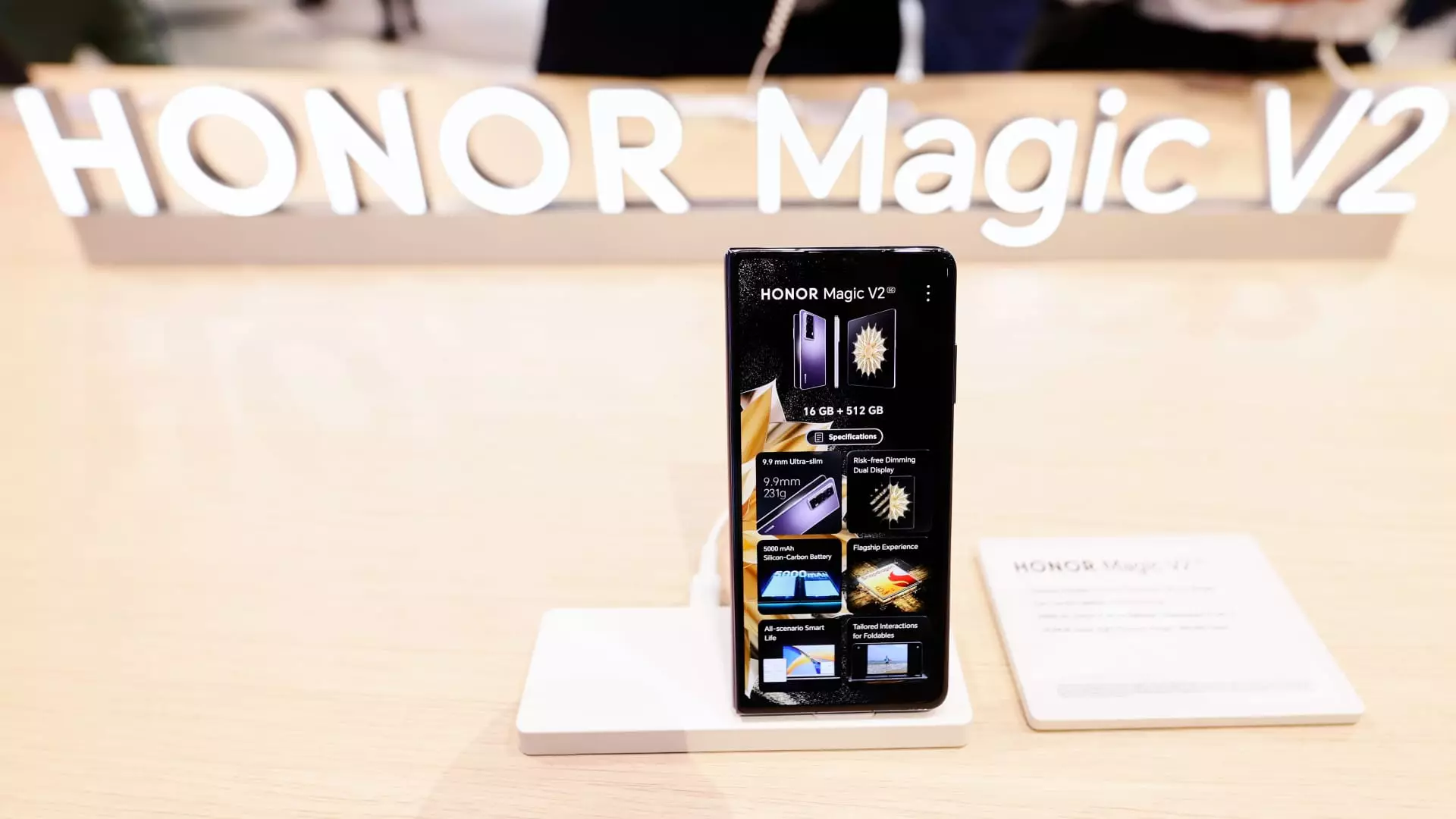The CEO of Chinese smartphone company Honor, George Zhao, emphasized the importance of data protection in the realm of artificial intelligence during an exclusive interview with CNBC. While discussing the integration of AI functions in smartphones, Zhao highlighted the need to limit AI operations involving personal data to the smartphone itself, known as on-device AI. This approach aims to ensure that user data remains secure and private, without being stored or processed in external cloud servers, thus underlining the value of data protection in AI technologies.
Zhao’s comments shed light on the distinction between on-device AI, which operates solely within the smartphone, and cloud-based AI, which relies on external servers for processing data. While Honor’s on-device AI focuses on enhancing user experience while safeguarding data privacy, cloud-based AI often raises concerns about data security and the potential risks associated with data transfer. Zhao’s stance underscores the critical role of maintaining a balance between AI capabilities and energy usage, as well as protecting user data from potential privacy breaches.
In exploring the trajectory of AI development, Zhao highlighted the diverging paths of network (cloud) AI and on-device AI. While network AI has demonstrated increasing power and sophistication, on-device AI offers a more personalized and intimate user experience, enabling consumers to interact with AI technologies in a seamless manner. Zhao’s vision for on-device AI revolves around empowering individuals and strengthening their capabilities within the AI ecosystem, rather than relegating users to a passive role in the face of advancing technology.
Zhao’s reflections on the future of smartphones underscore Honor’s commitment to empowering individuals through technological innovation. By focusing on creating devices that enhance user capabilities and protect data privacy, Honor aims to shift the balance of power from the technology itself to the individual user. This emphasis on user empowerment reflects a broader trend in the tech industry towards prioritizing user privacy and agency in the face of rapid technological advancements.
Honor’s Magic V2 folding phone, which garnered accolades for its innovative design and functionality, exemplifies the company’s commitment to pushing the boundaries of smartphone technology. With the upcoming release of the Magic V3 featuring Honor’s latest AI functions, the company continues to drive forward in the realm of AI-powered devices. By combining cutting-edge technology with a focus on user privacy and empowerment, Honor sets itself apart as a leader in the evolving landscape of AI-driven smartphones.
George Zhao’s insights into the intersection of AI, data protection, and user empowerment offer valuable perspectives on the evolving role of technology in our lives. By prioritizing data security, user privacy, and individual empowerment, companies like Honor are paving the way for a more ethical and user-centric approach to AI development. As the tech industry continues to grapple with the challenges of AI ethics and privacy, Zhao’s vision provides a roadmap for creating AI technologies that elevate and empower users in an increasingly connected world.


Leave a Reply